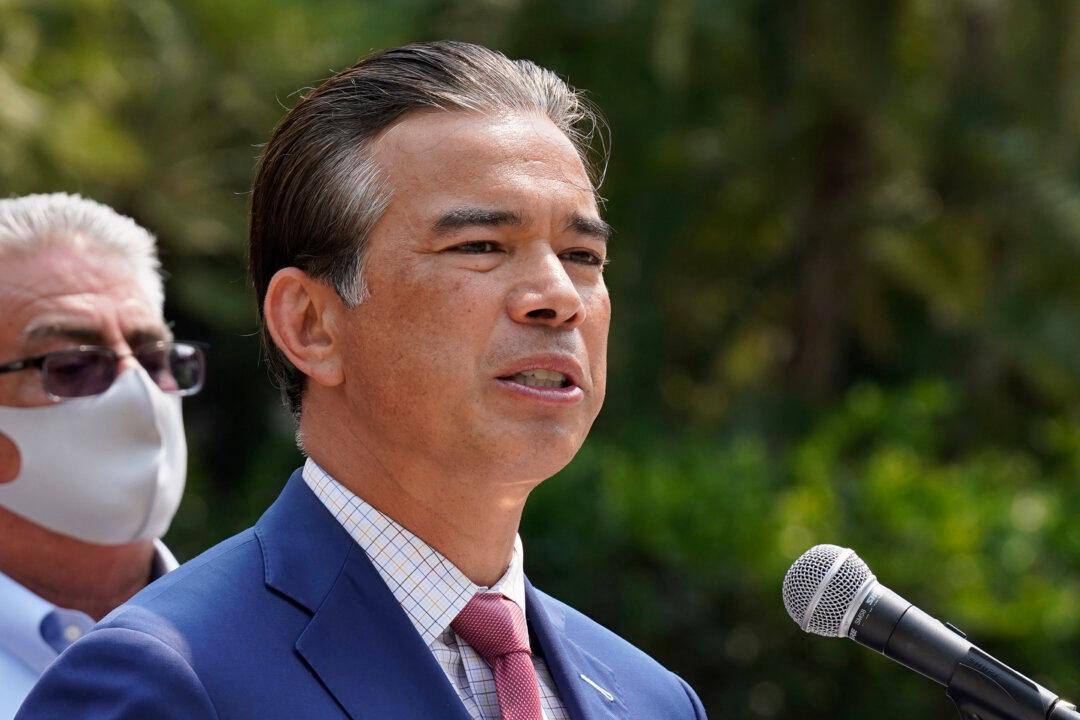California Attorney Gen. Robert Bonta on June 30 banned travel by employees using state funds to four additional states because, he said, they prohibit men from competing in women’s sports.
The new states under the ban—which applies to employees of state agencies, departments, boards, authorities, commissions, the California State University, and the University of California and its Board of Regents—are Indiana and Utah on July 1, Louisiana on Aug. 1, and Arizona on Sept. 28.





